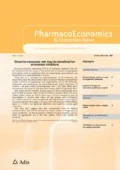According to US researchers, the use of natalizumab to treat multiple sclerosis (MS) improves overall QOL in the clinical setting.
The researchers conducted a one-time cross-sectional study* to assess MS patients' experiences with natalizumab and included patients enrolled in the TOUCH** prescribing programme who had complete their third but not fourth, natalizumab infusion. Patient-reported measures included an overall QOL assessment, an adapted version of the Multiple Sclerosis Impact Scale-29 (MSIS-29), and pre-/post-level functional status scores.
Of 451 patients, 97% reported an improvement (46%) or remained stable (51%) in their overall QOL. Similarly, 97% reported an improvement (30%) or remained stable (67%) in functional status when comparing the period before and after natalizumab treatment. Despite the short treatment duration, there were significant improvements (mean ± SD) in disease level (-0.26 ± 0.99) and functional status (-0.33 ± 0.73) scores. In addition, over 80% of patients reported an improvement in one or more MSIS-29 physical items. The physical item on the adapted MSIS-29 with the highest reported improvement (58%) was 'the ability to do physically demanding tasks' and the physical item with the lowest reported improvement (32%) was 'problems using transport'.
Natalizumab - therapeutic use - Quality-of-life - treatment - Outcome-assessment-(health-care) - Multiple-sclerosis
* as part of a research grant from Biogen-Idec
** Tysabri Outreach Unified Commitment to Health
REFERENCE
Kamat SA, Rajagopalan K, Stephenson JJ, Agarwal S.The impact of natalizumab on patient-reported outcomes in a critical practice setting: a cross-sectional survey. The Patient - Patient-Centered Outcomes Research 2: 105-112, No. 2, 1 Jan 2009
Rights and permissions
About this article
Cite this article
Natalizumab for MS improves QOL in the clinical setting. Pharmacoecon. Outcomes News 581, 9 (2009). https://doi.org/10.2165/00151234-200905810-00027
Published:
Issue Date:
DOI: https://doi.org/10.2165/00151234-200905810-00027

